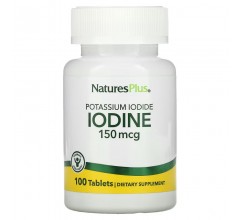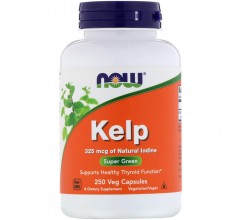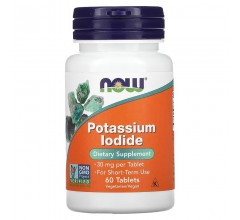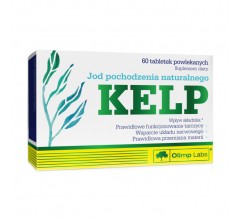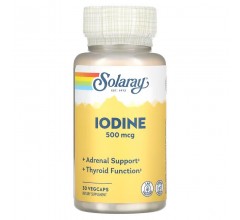NaturesPlus Potassium Iodide 150 mcg 100 Tablets
10085
5
375грн. 99грн.
- VIP: 345грн.
- GOLD: 356грн.
- SILVER: 364грн.
Now Foods Potassium Iodide 30mg 60 tabs
10335
5
310грн. 49грн.
- VIP: 285грн.
- GOLD: 295грн.
- SILVER: 301грн.
Showing 1 to 3 of 3 (1 Pages)
Iodine is vital for the human body. The consequences of iodine deficiency are dysfunction of the thyroid gland, sexual function, congenital pathologies and early mortality in children, mental and physical underdevelopment. Today, about 1.5 billion of the world's population suffer from iodine deficiency to one degree or another. The reason for this is the low iodine content in water, soil and food.
Iodine is of primary importance for the thyroid gland, the normal function of which depends on the functioning of the immune system, the brain, hormonal balance and the activity of many other body systems. So, the thyroid gland produces the hormone thyroxine, 65% of which is iodine. Thyroxine regulates the processes of energy exchange and respiration in cells, helps to cleanse harmful substances at the cellular level. Insufficient production of thyroxine causes impairment of memory and attention, a decrease in the level of intelligence, provokes such cardiac diseases as atherosclerosis, arrhythmia, hypertension. Iodine deficiency also contributes to increased swelling, muscle pain, and general weakness. Often, the level of hemoglobin in the blood decreases, and in this case, iron preparations are useless.
Mass prevention of iodine deficiency included the production of iodized table salt. But this is an ineffective measure. Firstly, such salt must be added to already cooked and slightly warm food, since potassium iodide decomposes at high temperatures. And secondly, many people stopped using salt on the recommendation of doctors because of the threat of other diseases.
Many people believe that vegetables, fruits, other foods containing iodine, and seafood should be included in the diet. Of course, this is the correct opinion. But there are difficulties here: the daily intake of iodine (200 μg in accordance with the recommendation of the World Health Organization) is contained in 5 kg of meat, 1.5 kg of bread or 250 g of oysters. Eating so much meat and bread is unlikely to be able to anyone, and so many oysters - for material reasons.
However, there is a fairly budgetary seafood that can provide the human body with iodine in the required amount - this is brown algae, or kelp.
You watched
